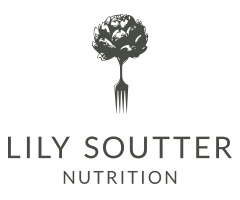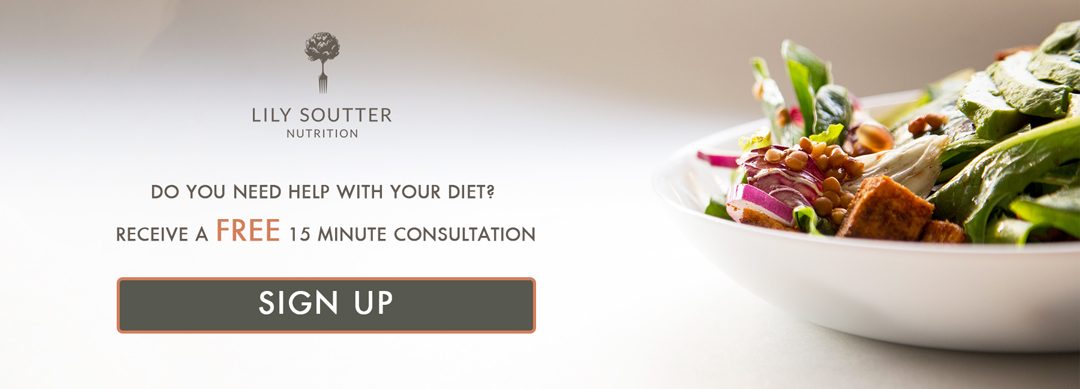The health and wellbeing of employees make an essential contribution to business success. What we eat generally provides at least 60% of our total daily food intake on an average working day, and since food fuels the body and brain, it can make or break whether we have a highly productive efficient day or a slow listless one.
Effective nutrition-focused wellness initiatives have been shown to create savings on health care costs, improve productivity and can even increase work moral. However when it comes to dietary change, workers don’t want to be preached at, the key is to provide health hacks and smarter eating strategies that empower employees to enjoy a healthy and successful lifestyle…
Educate and inspire with nutrition-focused lunch & learns
Nutrition focused workplace wellness initiatives are key to educating and inspiring employees to make healthier dietary choices which can enhance energy, cognitive performance and even mood. [1,2]
Lunch & learns are a time-efficient way to empower busy employees to make positive dietary changes. Topics can range from foods to boost brain power and mood, eating for a high energy workday and even dietary advice to support immunity all year round. What’s more, practical recipe workshops can encourage employees to put knowledge into practice, by inspiring them to create healthy lunches and snacks to boost work performance.[2]
Consider express nutrition clinic days
Employees included in the 2016 Financial Times Health at Work identified access to a nutritionist as having the highest potential health improvement rate! 30 minute express nutrition consultations held within the office can be an efficient way for individuals to obtain personalised dietary advice to overcome their barriers to change.
Lead by example and let your employee’s needs be heard
Implementing nutrition-focused wellness programmes into an office can fall on deaf ears if it’s not tailored to the employee’s needs. Each company is unique, therefore nutrition initiatives should be bespoke and flexible.
A key aspect of good nutrition intervention is to involve employees with planning and even execution. Providing a pre-programme questionnaire and appointing wellbeing champions to part-deliver training can be an efficient way of encouraging dietary change. Engaging employees with competitions such as developing recipes for a healthy heart month or breakfasts for energy can be a fast track way of building momentum.
What’s more, if senior members are seen to take the time to engage in nutrition-focused wellness interventions such as attending lunch and learns, it can set the president for the rest of the staff.
Could lunch breaks lead to better productivity?
If you suffer from that post-lunch slump, you may be interested to know that a recent survey by the recruiter Reed has shown that 68% of people don’t take their full lunch break and 2 in 3 weren’t eating lunch at all. [3]
Whilst it may seem like employees may be more efficient by forgoing their lunch breaks, this isn’t necessarily true. A 2018 survey showed that 90% of employees who took a proper lunch break felt more refreshed and ready to get back to work. What’s more, getting active during lunchtime has also been shown to improve concentration, mood and productivity at work. [4]
Encouraging employees to take lunch breaks and even organising lunchtime group walks may increase productivity and even moral!
Nutritional nudging and healthy snacking
The office cake tray culture is rife within the workplace. Whilst there is nothing wrong with enjoying an afternoon sweet treat, an abundance of energy-dense sweet foods can increase the risk of weight gain and it’s associated health conditions. This, in turn, may increase absenteeism and productivity.
Research including 940 office workers showed that cake/sweet treat were regularly displayed in the main working area for 70% of employees! Close to 60% of employees found it hard to refuse office cake if everyone else is eating it, and almost all participants (95%) thought that sweet treats should only be on display once a week or less. [5]
When it comes to offices snacking, ‘out of sight out of mind’ really is key. Remove barriers to change and get to the root cause of the issue by providing nourishing office snacks for longer-lasting energy and optimal brain function.
Snacks which balance blood sugar and provide an element of protein and fibre are a top choice for productivity. Try fresh fruit, nut butter, natural yoghurt, hummus with crudites, oatcakes with healthy toppings such as cottage cheese and tomato. For a sweeter alternative opt for dark chocolate, energy balls or a low sugar wholemeal banana loaf.
Sit-stand workstations & walking meetings
Ever felt sluggish and tired at your desk? It could be down to your sedentary lifestyle. Office workers spend 70-85% of their time sitting at work meaning that they are currently one of the most sedentary populations. Even when adults meet the physical activity guidelines, sitting for prolonged and unbroken periods of time has been associated with an increased risk of heart disease, diabetes and even weight gain. [6, 7]
Research published in the British Medical Journal (BMJ) found that sit-stand workstations could improve markers of health and even boost work performance. These height-adjustable stations were implemented in the trial which involved 146 NHS staff. Over a 12 month period, results showed an improvement in job performance, work engagement, occupational fatigue, presenteeism, daily anxiety and quality of life. [8]
Walking meetings are another way of encouraging activity, whilst the exercise and fresh air may increase creativity and concentration.
Provide water stations with a twist
It’s a no brainer that dehydration can cause a drop in workplace productivity. A meta-analysis has shown that dehydration can impair cognitive performance, particularly for tasks which involve attention and concentration. The researchers found that functions such as complex problem solving and coordination also suffered. [9]
Many of us forget to drink or simply just don’t like the taste of water. Provide water stations in the main working area or infusing water with berries and mint for a tastier beverage. Herbal and fruit teas all count towards our fluid intake. In the summer months, teas can be chilled to make a refreshing flavoursome iced tea.
Implementing educational material and signs within the office can also act as a reminder for employees to drink
References
- https://www.researchgate.net/profile/Ann_Mirabito/publication/49712304_What%27s_the_Hard_Return_on_Employee_Wellness_Programs/links/00b7d521f74c693d3f000000.pdf
- https://www.bdaworkready.co.uk/wp-content/uploads/2017/04/White-Paperuploaded.pdf
- https://www.reed.co.uk/recruiter-advice/30-minutes-or-less-the-rise-of-the-didnt-have-time-to-dine-culture/
- http://www.bristol.ac.uk/news/2008/6063.html
- https://louwalker.com/wp-content/uploads/2018/12/NutSoc-abstract-V2.docx.pdf
- https://www.ncbi.nlm.nih.gov/pmc/articles/PMC3404815/
- https://www.ncbi.nlm.nih.gov/pmc/articles/PMC3419586/
- https://www.bmj.com/content/363/bmj.k3870
- https://journals.lww.com/acsm-msse/Citation/2018/11000/Dehydration_Impairs_Cognitive_Performance___A.21.aspx
Lily is a London Nutritionist who graduated from Newcastle University with a BSc (Hons) degree in Food and Human Nutrition (AfN accredited) where she was awarded the Sage Faculty for Excellence Scholarship on an annual basis. She then went on to complete a 2-year post-graduate Diploma in Nutritional Therapy and is currently working towards her MSc in Nutritional Medicine (AfN accredited) at the University of Surrey. Lily’s extensive knowledge of the science of food and health, enables her to regularly write for The Times, The Telegraph, The Daily Mail, The Independent, Women’s Health and Cosmopolitan.
Her frequent TV appearances include ITV’s This Morning with Holly Willoughby and Phillip Schofield, and ITV’s primetime series Save Money: Lose Weight with Dr Ranj Singh. Lily’s passion is to simplify the science around nutrition, to provide health hacks and smarter eating strategies to empower people to enjoy a healthy and successful lifestyle. Her specialities lie in workplace wellness, implementing nutrition-focused wellbeing programmes within corporate organisations across the UK.
Lily also sees individual clients from her clinic in Chelsea and a private medical practice based in Notting Hill.




